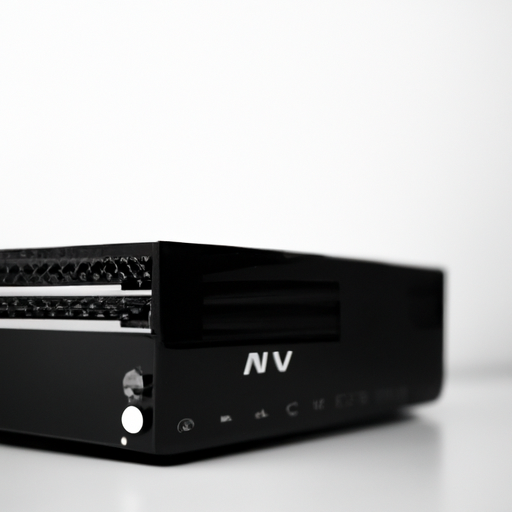



Imagine being able to run server software on a tiny, compact mini PC. Sounds too good to be true, right? Well, think again! In this article, we explore the fascinating world of running server software on a mini PC and the endless possibilities it presents. Get ready to be amazed as we uncover the potential of these small but mighty devices and how they can revolutionize the way you handle server operations. So, buckle up and prepare to embark on a remarkable journey into the realm of mini PC server software!
Can You Run Server Software On A Mini PC?
Considerations for Running Server Software on a Mini PC
When it comes to running server software, there are a few important considerations to keep in mind when using a mini PC. The first consideration is the hardware limitations of a mini PC. Mini PCs usually have less processing power, memory, and storage capacity compared to traditional servers. Therefore, it is crucial to choose the right mini PC model that can handle the workload of your server software.
Another consideration is the power consumption of the mini PC. Traditional servers are designed to handle continuous high workloads, while mini PCs are designed for more lightweight tasks. Running server software on a mini PC might require additional cooling measures to prevent overheating. It is also important to ensure that the mini PC’s power supply can handle the demands of the server software.
Advantages of Running Server Software on a Mini PC
Despite the hardware limitations, there are several advantages to running server software on a mini PC. One of the main advantages is cost-effectiveness. Mini PCs are generally more affordable than traditional servers, making them a more budget-friendly option for small businesses or individuals who need a server on a tight budget.
Mini PCs are also compact and portable, meaning they can easily fit into smaller spaces or be transported if needed. This is especially beneficial for small businesses or individuals who have limited space or frequently travel and require a portable server solution.
Types of Mini PCs Suitable for Running Server Software
There are various types of mini PCs available on the market, each with its own specifications and capabilities. When choosing a mini PC for running server software, it is important to consider the specific requirements of your software and the expected workload.
Some popular mini PC models that are commonly used for server applications include Intel NUC (Next Unit of Computing) and Raspberry Pi. These mini PCs offer a good balance between price, performance, and power efficiency. However, depending on the complexity of your server software, you may need more powerful mini PC models.
Best Practices for Setting Up Server Software on a Mini PC
To ensure optimal performance and stability when running server software on a mini PC, it is essential to follow some best practices during the setup process. Firstly, it is recommended to use a clean installation of the operating system specifically designed for server applications. This helps to eliminate unnecessary bloatware and optimize the resources available for the server software.
It is also important to configure the mini PC’s BIOS settings to prioritize performance over power saving features. This ensures that the mini PC utilizes its resources efficiently and handles the server software workload effectively.
Furthermore, regular monitoring and maintenance of the mini PC is crucial to identify any performance bottlenecks or issues before they become major problems. This includes updating the server software and operating system, checking hardware components, and optimizing the server software configuration.
Choosing the Right Operating System for Your Mini PC Server
Selecting the appropriate operating system for your mini PC server is an essential step in ensuring smooth and efficient operation. Linux-based operating systems, such as Ubuntu Server, are often recommended for server applications due to their stability, security, and wide range of software support.
However, it is important to consider the compatibility of your server software and its specific requirements. Some server software may only be compatible with Windows-based operating systems. Therefore, it is crucial to research and choose the operating system that best suits the needs of your server software.
Optimizing Performance of Server Software on a Mini PC
To maximize the performance of your server software on a mini PC, there are several optimization techniques that can be implemented. One approach is to prioritize and allocate system resources specifically for the server software. This can be done by adjusting the CPU and memory usage limits within the operating system or using resource management tools.
It is also recommended to disable unnecessary background processes and services that are not required for the server software. This helps to free up system resources and prevent potential conflicts or bottlenecks.
Additionally, optimizing the storage configuration by using solid-state drives (SSDs) instead of traditional hard drives can significantly improve the overall performance and responsiveness of the server software.
Networking and Connectivity Considerations for Mini PC Servers
When running server software on a mini PC, networking and connectivity play a crucial role. It is important to ensure that the mini PC has reliable and fast internet connectivity to handle incoming client requests and data transfer.
Using a wired Ethernet connection is generally preferred over wireless connections, as it offers more stability and higher data transfer speeds. If a wired connection is not feasible, it is important to choose a mini PC model with robust Wi-Fi capabilities or consider using additional networking equipment such as range extenders or access points to improve the network performance.
Security Measures for Mini PC Servers
Maintaining the security of your mini PC server is of utmost importance, especially when handling sensitive data or providing services to external clients. Some essential security measures to consider include:
- Regularly updating the operating system and server software to ensure the latest security patches are installed.
- Enabling and configuring a firewall to control incoming and outgoing network traffic.
- Implementing strong and unique passwords for server access and user accounts.
- Configuring access controls to restrict unauthorized access to the server software and its resources.
- Implementing data backup and recovery strategies to protect against data loss or system failures.
It is also recommended to regularly monitor server logs for any suspicious activities and to consider implementing additional security measures such as intrusion detection systems or encryption protocols.
Common Challenges when Running Server Software on Mini PCs
Running server software on a mini PC can present some challenges, especially when compared to traditional servers. One common challenge is resource limitations, such as limited processing power, memory, or storage capacity. This can affect the performance and scalability of the server software, especially when dealing with high workloads or a large number of clients.
Another challenge is the lack of redundancy and failover capabilities found in traditional server setups. Mini PCs are generally standalone devices without RAID configurations or redundant power supplies. This means that if the mini PC fails, there may be a longer downtime until the issue is resolved or the server software is transferred to another device.
Conclusion
In conclusion, it is indeed possible to run server software on a mini PC. However, careful consideration of the hardware limitations, performance optimizations, and security measures is essential to ensure the smooth and reliable operation of the server software. By choosing the right mini PC model, operating system, and following best practices, running server software on a mini PC can be a cost-effective and flexible solution for small businesses or individuals requiring a server setup.
Disclosure: As an Amazon Associate, I earn from qualifying purchases.




